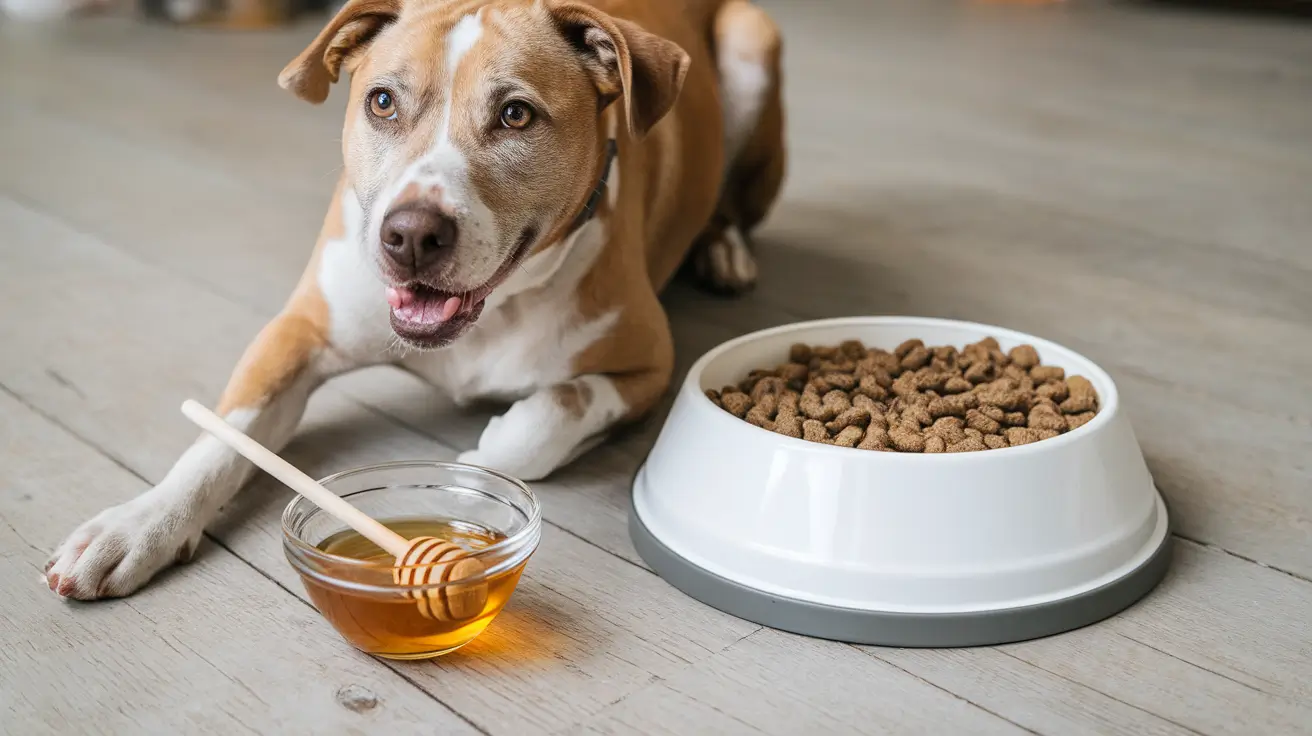Introduction to Honey as a Canine Treat
Honey, a natural sweetener celebrated for centuries for its culinary and medicinal properties, is not just a staple in human diets but can also be a delightful treat for dogs. Its historical significance spans across cultures, where it has been used not only to enhance flavors but also to heal. For dogs, honey can offer a range of benefits, provided it is given in moderation. Understanding its potential advantages and risks is essential for any pet owner considering this sweet addition to their dog's diet.
Understanding the Benefits of Honey for Dogs
Nutritional Advantages
Honey is packed with an array of vitamins and minerals that can contribute to a dog's overall health. It contains essential nutrients like ascorbic acid, pantothenic acid, niacin, riboflavin, calcium, copper, iron, magnesium, manganese, phosphorus, potassium, and zinc. These components can help in maintaining a balanced diet for your canine companion, supporting various bodily functions and ensuring dietary balance.
Immune System Support
The antioxidant properties of honey are particularly beneficial in enhancing a dog's immune system. Antioxidants play a crucial role in protecting body cells from damage, thereby strengthening cellular defense. This makes honey a potential immune booster, helping dogs to fend off illnesses more effectively.
Natural Remedies
Honey, especially varieties like manuka honey, is known for its antimicrobial properties, which inhibit bacterial growth. This makes it an effective natural remedy for wound care, promoting healing and preventing infection. Its application can be particularly beneficial for minor cuts and abrasions, providing a natural alternative to chemical treatments.
Digestive Benefits
With its low glycemic index, honey can aid in digestive health when given in moderation. Unlike other sweeteners, honey's natural sugars are less likely to cause spikes in blood sugar levels, making it a gentle addition to a dog's diet. However, it is crucial to administer it in small amounts to avoid any adverse digestive effects.
Cough Relief
Honey can also serve as a home remedy for soothing a dog's scratchy throat and alleviating coughs. Its soothing properties can provide temporary relief, but it is important to consult a veterinarian if the cough persists, as it might indicate underlying health issues.
Potential Risks of Feeding Honey to Dogs
Sugar Content Concerns
Despite its benefits, honey is high in sugar, which can lead to digestive issues such as an upset stomach, decreased appetite, fatigue, diarrhea, constipation, and vomiting. Over time, excessive sugar consumption can result in more serious health issues like obesity and diabetes, necessitating careful moderation.
Botulism and Safety Precautions
One of the risks associated with honey is the potential presence of botulism spores in raw honey, which can be harmful to puppies and immunocompromised dogs. To mitigate this risk, it is advisable to feed dogs only processed honey, ensuring their safety and well-being.
Allergic Reactions
While honey can be beneficial for many dogs, some may experience allergic reactions. It's important to monitor your dog for signs of allergies, such as itching, redness, or swelling, after introducing honey into their diet. If any adverse reactions occur, discontinue use and consult a veterinarian.
Guidelines for Feeding Honey to Dogs
Recommended Portions
Portion control is key when feeding honey to dogs. Depending on their size, the recommended daily portions are as follows:
- Extra-small dog (2–20 pounds): 1/4 teaspoon
- Small dog (21–30 pounds): 1/2 teaspoon
- Medium dog (31–50 pounds): 1 teaspoon
- Large dog (51–90 pounds): 2 teaspoons
- Extra-large dog (91+ pounds): 1 tablespoon
Integrating Honey into a Balanced Diet
Honey should comprise only a small percentage of a dog's daily caloric intake. It is important that the majority of their diet consists of well-balanced dog food, ensuring they receive all necessary nutrients for optimal health.
Creative Ways to Incorporate Honey into Your Dog's Diet
Homemade Treats
Honey can be a delightful ingredient in homemade dog treats. Consider baking honey-glazed meatballs or other treats to make mealtime more exciting for your pet. These DIY treats can be a safe and delicious way to incorporate honey into their diet.
Fun Treats with KONG Toys
For an interactive treat, mix a little honey with peanut butter, stuff it into a KONG toy, and freeze it overnight. This creates a tasty and engaging treat that can keep your dog entertained and satisfied.
Healthy Smoothies for Dogs
Incorporate honey into a nutritious doggy smoothie by blending it with dog-safe fruits and vegetables, along with plain, sugar-free, xylitol-free Greek yogurt. This smoothie can be served as a standalone treat or as a topper for regular meals, adding variety and nutrition to your dog's diet.
Conclusion: Prioritizing Canine Health with Honey
Honey can be a beneficial and enjoyable treat for dogs when used wisely. While it offers numerous health benefits, including nutritional support, immune enhancement, and natural remedies, it is crucial to be aware of the potential risks, such as high sugar content and allergic reactions. By adhering to recommended guidelines and consulting with a veterinarian, pet owners can safely integrate honey into their dog's diet. Ultimately, prioritizing your dog's health and safety is paramount, ensuring they enjoy the sweet benefits of honey without compromising their well-being.






